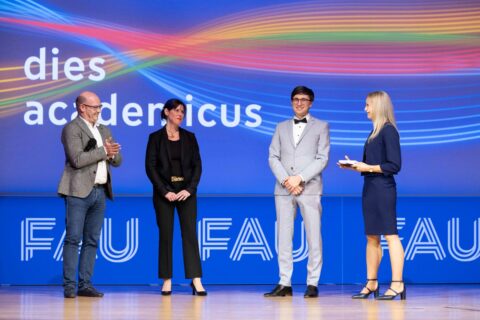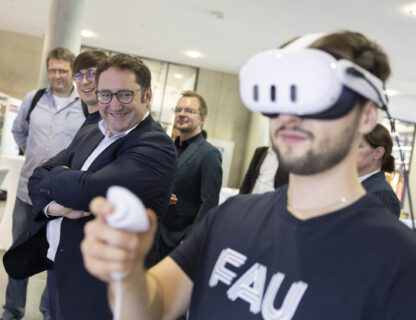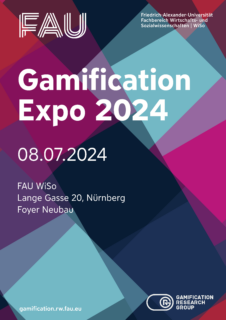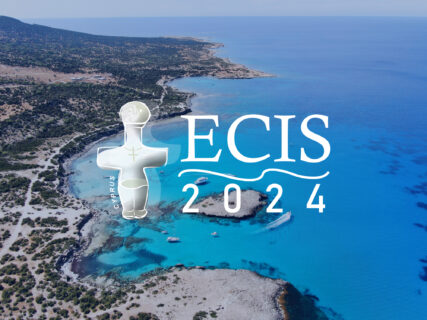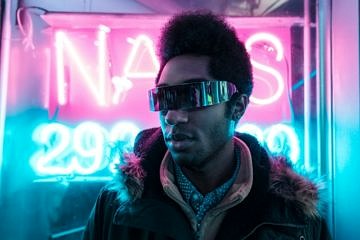Juniorprofessur für Wirtschaftsinformatik, insb. Gamification (adidas Stiftungsprofessur)
Die Gamification Research Group beendet im Wintersemester 2024/2025 ihre Arbeit an der FAU, um sie an der Universität Bamberg fortzusetzen. Wir bedanken uns bei der Studierendenschaft, bei allen Kolleginnen und Kollegen und bei allen Partnerinnen und Partnern für die tolle Zusammenarbeit der letzten vier Jahre.
Die Gamification Research Group untersucht die zunehmende Durchdringung von Wirtschaft und Alltag mit Games, sowie aus der Gaming-Industrie kommende Phänomene und Trends (z.B. Virtual- & Augmented-Reality, Virtual Goods, eSports, das ‚Metaverse‘ oder Serious Games) und erarbeitet Wissen für die optimale Gestaltung von gamifizierten und interaktiven Informationssystemen.
Unsere Schwerpunkte sind hierbei die Erforschung der Auswirkungen von Gamification-Ansätzen auf Motivation, Nutzererleben (UX) und das Verhalten von Menschen im Umgang mit Informationstechnologien, sowie die Entwicklung von Innovationen, welche durch Technologien und Trends der (Video-) Spielbranche inspiriert sind.
Wir wenden unsere Forschung findet Anwendung in verschiedenen Bereichen (z.B. Nachhaltigkeit, Training & Ausbildung, eCommerce, Mobilität, Zusammenarbeit, Produktdesign, Innovation, Kreativität) und Branchen (z.B. Konsumgüter, Automobilindustrie, Banking, Gesundheitswesen, Bildung) an und fokussieren uns auf die Entwicklung von Lösungen für drängende Herausforderungen in Wirtschaft und Gesellschaft.
Im Rahmen des diesjährigen Dies Academicus der Friedrich-Alexander-Universität Erlangen-Nürnberg (FAU) wurde unsere interdisziplinäre Zusammenarbeit mit Sandra Jeleazcov vom Universitätsklinikum Erlangen zum Einsatz von Gamification in der Wissenschafts- und Patientenkommunikation mit der renommiert...
Die Erschließung der Potenziale von KI um in „Co-Creativity“ nachhaltige Innovationen und Geschäftsmodelle zu entwickeln – darum geht es beim Projekt „eCo-CreAItion“, welches unsere Post-Doktorandin Jeanine Kirchner-Krath unterstützt durch das Bayerisches Forschungsinstitut für Digitale Transformati...
Unsere Gamification-Forschungsgruppe hat am 8. Juli 2024 im Rahmen der Gamification Expo 2024 im Foyer der Langen Gasse Einblick in laufende Gamification-Projekte in Forschung und Lehre gegeben.
Vorgestellt wurden spannende Kooperationen, wie etwa mit adidas zu Gamification im Fußball und Laufspo...
Digitale Spiele – oder „Games“ – gehören zu den wichtigsten Medien unserer Zeit und begeistern in Deutschland etwa 60 Prozent der Bevölkerung. Kein Wunder also, dass die Gestaltungsansätze und Mechanismen von Games und die Innovationen der Games-Industrie auch außerhalb der Computerspiele-Branche g...
Unsere Forschungsgruppe feiert einen großen Erfolg bei der diesjährigen European Conference on Information Systems (ECIS 2024): alle drei eingereichten Paper von Sandra Birnstiel, Runjie Xie und Jeanine Kirchner-Krath wurden nach einem kompetitiven Peer-Review Prozess zur Präsentation auf der Konfer...

